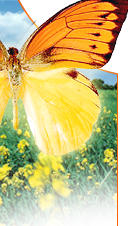 |
 |
EARTH ETHICS 1996 Spring/Summer Global Ethics, International Law, and The Earth Charter, by Steven C. Rockefeller.
This article discusses the history, resources, need for, and development of the Earth Charter to date. It also lays out the continuing development process ending in affirmation by the United Nations and provides a copy of the "Statement of Principles" proposed to guide the Charter preparation.
Population, Poverty and Sustainable Development, by Daniel Maguire. In considering the most complex and seemingly insurmountable problems of the current age, Maguire notes that "a look at the earth, most of which is a slum, witnesses to our perverse and persistent choice of death" when we are called to dance the dance of joy on an earth we cherish. Spiritual Resources for a World Ethic, by Tu Weiming. We are challenged to begin to question the soundness or even sanity of some of our most cherished ways of thinking. World Religion and Global Ecological Ethics, Contributions From Confucianism and Buddhism, by Mary Evelyn Tucker. Provides a thoughtful encouragement to look to Buddhism and Confucianism as resources to sustain us in deciding how to respond to the ecological crisis.. Critical Tasks for the Earth Charter Process, by Richard M. Clugston. In working towards an Earth Charter, there are four tasks needed to shift development paradigms: restructuring ethical assumptions, securing human rights and extending them to the rest of nature, creating a new "bottom line" for development, and identifying and promoting the models and practices for sustainable livelihoods and societies. The Rights of Animals, by John A. Hoyt. What do we mean when we say animals have rights? Do animals have intrinsic worth? Do they deserve adequate nutrition and a place to work for the own sustainable livelihood? The Genuine Progress Indicator, by Redefining Progress. In applying the Genuine Progress Indicator (GPI) to our world's most economically advantaged countries a new view of progress may be unavoidable. Mapping the Movement for Sustainable Livelihoods, by Jeffrey Barber. Underlying most of the separate movements towards some aspect of sustainability, Barber sees a new people-centered concern that includes the health of the community of life, the natural environment on which both market and social economies depend. Strengthing Women's Livelihoods, by Noeleen Heyzer. There is a seeming contradiction between shorter-term economic needs and longer-term ecological imperatives. Heyzer observes that it is women who have mediated between the pressures for immediate survival and improvement of family conditions and the necessity to do so in a sustainable way. The Ethical Imperative, by Margaret Morgan-Hubbard. At the core of the question of achieving real change lies the question of what transformations are necessary to reverse environmental degradation and to live one more in harmony with mother living things. Global Ethics for Earth Community, by Dieter T. Hessel. Hessel reminds us that "ecological sustainability, basic sufficiency, fair participation, and post-anthropocentric solidarity with Earth and people are core values" on which we need to rely. |